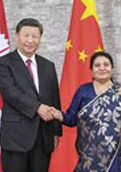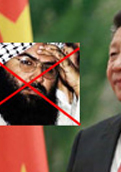Beijing’s Soft Diplomacy in West Asia in Times of COVID-19
China’s soft diplomacy in West Asia, particularly in times of pandemic, is a way to improve its global image and recast itself as a responsible actor at relatively low cost, rather than a sign of any deeper commitment towards the region.
- Nagapushpa Devendra
- July 03, 2020












